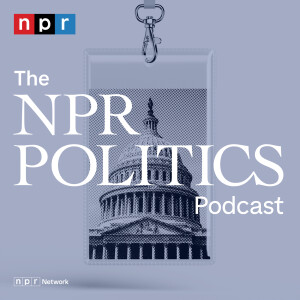
The US Is Flirting With Financial Calamity: What You Need To Know
 2023-05-09
2023-05-09
Download
Right click and do "save link as"
Congress has long directed the government to spend more money than it collects in taxes. That means the government has to borrow money to meets its obligations, which it does by selling Treasury securities.
Treasury securities are a promise from the government that you if give it money now, it will pay you back with interest later. They have long been considered among the safest investments in the world.
But now, the U.S. is flirting with not paying its bills by refusing to increase the amount of money that the government is legally allowed to borrow — its "debt ceiling."
We explain the basics of how the system works and what the consequences might be if the ceiling is not raised and the government runs out of money.
This episode: White House correspondent Tamara Keith and political correspondent Kelsey Snell.
The podcast is produced by Elena Moore and Casey Morell. Our editor is Eric McDaniel. Our executive producer is Muthoni Muturi.
Unlock access to this and other bonus content by supporting The NPR Politics Podcast+. Sign up via Apple Podcasts or at plus.npr.org.
Connect:
Email the show at nprpolitics@npr.org
Join the NPR Politics Podcast Facebook Group.
Subscribe to the NPR Politics Newsletter.
view more
Treasury securities are a promise from the government that you if give it money now, it will pay you back with interest later. They have long been considered among the safest investments in the world.
But now, the U.S. is flirting with not paying its bills by refusing to increase the amount of money that the government is legally allowed to borrow — its "debt ceiling."
We explain the basics of how the system works and what the consequences might be if the ceiling is not raised and the government runs out of money.
This episode: White House correspondent Tamara Keith and political correspondent Kelsey Snell.
The podcast is produced by Elena Moore and Casey Morell. Our editor is Eric McDaniel. Our executive producer is Muthoni Muturi.
Unlock access to this and other bonus content by supporting The NPR Politics Podcast+. Sign up via Apple Podcasts or at plus.npr.org.
Connect:
Email the show at nprpolitics@npr.org
Join the NPR Politics Podcast Facebook Group.
Subscribe to the NPR Politics Newsletter.
More Episodes
Weekly Roundup: Hush Money, Pocket Money
 2024-04-26
2024-04-26
 2024-04-26
2024-04-26
Absolute Immunity?
 2024-04-25
2024-04-25
 2024-04-25
2024-04-25
What To Know About Trump's Abortion Policy
 2024-04-09
2024-04-09
 2024-04-09
2024-04-09
Congress Is Back And As Messy As Ever
 2024-04-08
2024-04-08
 2024-04-08
2024-04-08
Roundup: Biden Calls Bibi; New Poll
 2024-04-05
2024-04-05
 2024-04-05
2024-04-05
012345678910111213141516171819
Create your
podcast in
minutes
- Full-featured podcast site
- Unlimited storage and bandwidth
- Comprehensive podcast stats
- Distribute to Apple Podcasts, Spotify, and more
- Make money with your podcast
It is Free
- Privacy Policy
- Cookie Policy
- Terms of Use
- Consent Preferences
- Copyright © 2015-2024 Podbean.com



